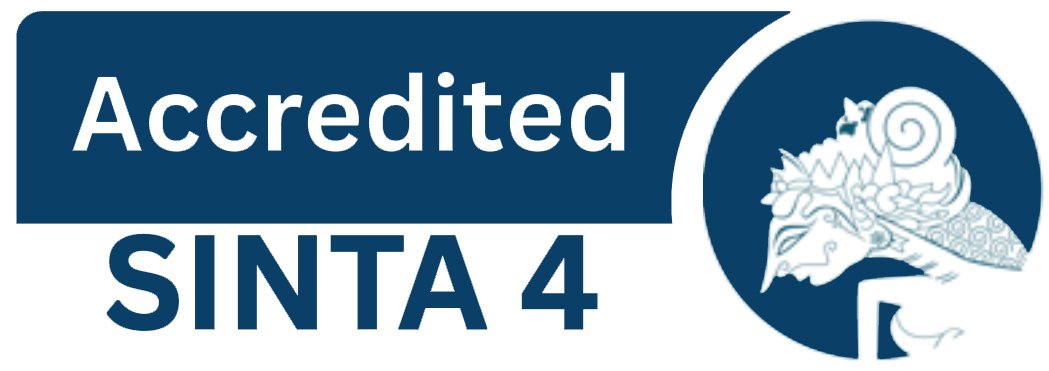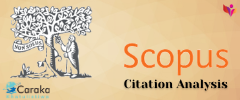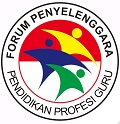Pengajaran Bahasa Berbasis Tugas (Task-Based Language Teaching) Studi Kasus Guru Bahasa Inggris SMP
DOI:
https://doi.org/10.22460/jpp.v2i1.17404Keywords:
bahasa inggris, pengajaran bahasa berbasis tugas, sekolah menengah pertamaAbstract
Like many methodological innovations, Task-Based Language Teaching (TBLT) has been applied to many English curricula throughout Asia. However, little research has been conducted to explore what teachers know and believe about these method reforms in the specific context of their profession. This research originates from an in-depth study of teacher cognition in Junior High Schools in Tebo District, Indonesia using multi-methods of data collection. In this study, the findings will be reviewed and explained from one of the methods used to obtain teacher knowledge and attitudes towards narrative inquiry. In detail, teachers were asked to write reflective comments in Indonesian about their attitudes towards TBLT, and the experiences they had after implementing TBLT in class. After explaining some of the findings, the approach to data collection and the relevant context can be used as a reference for further research.
References
Barkhuizen, G., & Wette, R. (2008). Narrative frames for investigating the experiences of language teachers. System, 36(3), 372–387. https://doi.org/10.1016/j.system.2008.02.002
Bastani, K., Namavari, H., & Shaffer, J. (2019). Latent Dirichlet allocation (LDA) for topic modeling of the CFPB consumer complaints. Expert Systems with Applications, 127, 256–271. https://doi.org/10.1016/j.eswa.2019.03.001
Bombak, A. E., Meadows, A., & Billette, J. (2019). Fat acceptance 101: Midwestern American women’s perspective on cultural body acceptance. Health Sociology Review, 28(2), 194–208. https://doi.org/10.1080/14461242.2019.1604150
Borup, J., Graham, C. R., West, R. E., Archambault, L., & Spring, K. J. (2020). Academic Communities of Engagement: an expansive lens for examining support structures in blended and online learning. Educational Technology Research and Development, 68(2), 807–832. https://doi.org/10.1007/s11423-020-09744-x
Braun, V., & Clarke, V. (2021). Can I use TA? Should I use TA? Should I not use TA? Comparing reflexive thematic analysis and other pattern-based qualitative analytic approaches. Counselling and Psychotherapy Research, 21(1), 37–47. https://doi.org/10.1002/capr.12360
Campbell, R., Goodman-Williams, R., & Javorka, M. (2019). A Trauma-Informed Approach to Sexual Violence Research Ethics and Open Science. Journal of Interpersonal Violence, 34(23–24), 4765–4793. https://doi.org/10.1177/0886260519871530
Creswell, J. D., Welch, W. T., Taylor, S. E., Sherman, D. K., Gruenewald, T. L., & Mann, T. (2005). Affirmation of personal values buffers neuroendocrine and psychological stress responses. Psychological Science, 16(11), 846–851. https://doi.org/10.1111/j.1467-9280.2005.01624.x
Filgona, J., Sakiyo, J., Gwany, D. M., & Okoronka, A. U. (2020). Motivation in Learning. Asian Journal of Education and Social Studies, 10(4), 16–37. https://doi.org/10.9734/ajess/2020/v10i430273
Fox, M. F. J., Werth, A., Hoehn, J. R., & Lewandowski, H. J. (2020). Teaching labs during a pandemic: Lessons from Spring 2020 and an outlook for the future. 1–24. http://arxiv.org/abs/2007.01271
Liu, C., & Tseng, M. Y. (2021). Paradigmatic variation in hedging and boosting: A comparative study of discussions in narrative inquiry and grounded theory research. English for Specific Purposes, 61, 1–16. https://doi.org/10.1016/j.esp.2020.08.002
Mulyadi, D., Wijayatiningsih, T. D., Swaran Singh, C. K., & Prastikawati, E. F. (2021). Effects of technology enhanced task-based language teaching on learners’ listening comprehension and speaking performance. International Journal of Instruction, 14(3), 717–736. https://doi.org/10.29333/iji.2021.14342a
Murray, Neil, Liddicoat, A. J., Zhen, G., & Mosavian, P. (2020). Constraints on innovation in English language teaching in hinterland regions of China. Language Teaching Research. https://doi.org/10.1177/1362168820979855
Murray, Norman, Quataert, E., & Thompson, T. A. (2010). The disruption of giant molecular clouds by radiation pressure & the efficiency of star formation in galaxies. Astrophysical Journal, 709(1), 191–209. https://doi.org/10.1088/0004-637X/709/1/191
Nam, H. (2023). Challenges and Constraints of Implementing Communicative Language Teaching: Teacher-Related vs. Non-Teacher-Related Factors. Journal, 16(1), 75–96. https://so04.tci-thaijo.org/index.php/LEARN/index
Prilutskaya, M. (2021). Examining pedagogical translanguaging: A systematic review of the literature. Languages, 6(4). https://doi.org/10.3390/languages6040180
Reich, J., Buttimer, C., Coleman, D., Colwell, R., Faruqi, F., & Larke, L. (2020). What’s lost, what’s left, what’s next: Lessons Learned from the Lived Experiences of Teaching during the Novel Coronavirus Pandemic. Teaching System Lab, 1–28. https://osf.io/2fjtc/.
Reitman, G., & Karge, B. D. (2019). Investing in Teacher Support Leads to Teacher Retention: Six Supports Administrators Should Consider for New Teachers. Multicultural Education, 27(1), 7–18.
Rissanen, I., Kuusisto, E., Tuominen, M., & Tirri, K. (2019). In search of a growth mindset pedagogy: A case study of one teacher’s classroom practices in a Finnish elementary school. Teaching and Teacher Education, 77, 204–213. https://doi.org/10.1016/j.tate.2018.10.002
Roy, R., & Uekusa, S. (2020). Collaborative autoethnography: “self-reflection†as a timely alternative research approach during the global pandemic. Qualitative Research Journal, 20(4), 383–392. https://doi.org/10.1108/QRJ-06-2020-0054
Sato, M., & Oyanedel, J. C. (2019). “I think that is a better way to teach but …“: EFL teachers’ conflicting beliefs about grammar teaching. System, 84, 110–122. https://doi.org/10.1016/j.system.2019.06.005
Schill, C., Anderies, J. M., Lindahl, T., Folke, C., Polasky, S., Cárdenas, J. C., Crépin, A. S., Janssen, M. A., Norberg, J., & Schlüter, M. (2019). A more dynamic understanding of human behaviour for the Anthropocene. Nature Sustainability, 2(12), 1075–1082. https://doi.org/10.1038/s41893-019-0419-7
Shufutinsky, A. (2020). Employing use of self for transparency, rigor, trustworthiness, and credibility in qualitative organizational research methods. Organization Development Review, 52(1), 50–58.
Smith, J. (2019). Curriculum coherence and teachers’ decision-making in Scottish high school history syllabi. Curriculum Journal, 30(4), 441–463. https://doi.org/10.1080/09585176.2019.1647861
Vaughn, M., Scales, R. Q., Stevens, E. Y., Kline, S., Barrett-Tatum, J., Van Wig, A., Yoder, K. K., & Wellman, D. (2021). Understanding literacy adoption policies across contexts: a multi-state examination of literacy curriculum decision-making. Journal of Curriculum Studies, 53(3), 333–352. https://doi.org/10.1080/00220272.2019.1683233
Vogt, K., Tsagari, D., & Spanoudis, G. (2020). What Do Teachers Think They Want? A Comparative Study of In-Service Language Teachers’ Beliefs on LAL Training Needs. Language Assessment Quarterly, 00(00), 386–409. https://doi.org/10.1080/15434303.2020.1781128
Wood, L. M., Sebar, B., & Vecchio, N. (2020). Application of rigour and credibility in qualitative document analysis: Lessons learnt from a case study. Qualitative Report, 25(2), 456–470. https://doi.org/10.46743/2160-3715/2020.4240
Downloads
Published
How to Cite
Issue
Section
License
Copyright (c) 2023 Jurnal Profesi Pendidikan (JPP)

This work is licensed under a Creative Commons Attribution-ShareAlike 4.0 International License.
Authors who publish with the Journal Pendidikan Profesi (JPP) agree to the following terms:
- Authors retain copyright and grant the journal the right of first publication with the work simultaneously licensed under a Creative Commons Attribution License (CC BY-SA 4.0) that allows others to share the work with an acknowledgment of the work's authorship and initial publication in this journal.
- Authors are able to enter into separate, additional contractual arrangements for the non-exclusive distribution of the journal's published version of the work (e.g., post it to an institutional repository or publish it in a book), with an acknowledgment of its initial publication in this journal.
- Authors are permitted and encouraged to post their work online (e.g., in institutional repositories or on their website) prior to and during the submission process, as it can lead to productive exchanges, as well as earlier and greater citation of published work. (See The Effect of Open Access)
Similar Articles
- Luviani Sri Rezeki, Trisna Nugraha, Penggunaan Model Project Based Learning Berbasis Socio Scientific Issues untuk Meningkatkan Kemampuan Berpikir Kreatif Siswa Kelas IV Sekolah Dasar , Jurnal Profesi Pendidikan: Vol. 3 No. 2 (2024): December
- Murni Murni, Dampak Metode Pengajaran Terhadap Prestasi Siswa pada Mata Pelajaran IPS: Studi Kasus beberapa SMP Negeri di Kabupaten Tebo , Jurnal Profesi Pendidikan: Vol. 2 No. 1 (2023): June
- Siti Tazkiyah, Evi Karlina Ambarwati, Mengeksplorasi Penggunaan Strategi Metakognitif Terhadap Pemahaman Membaca Teks Berbahasa Inggris Pada Siswa SMP Di Daerah Tertinggal , Jurnal Profesi Pendidikan: Vol. 1 No. 2 (2022): December
- Risky Tri Juniar, Ruli Setiyadi, Evi Susanti, Pengembangan Bahan Ajar Materi Teks Cerita Rakyat Dengan Menggunakan Pendekatan Saintifik Berbasis Aplikasi Canva Untuk Meningkatkan Kemampuan Membaca Pemahaman Pada Teks Cerita Siswa Kelas IV SD , Jurnal Profesi Pendidikan: Vol. 2 No. 1 (2023): June
- Lia Cristilia, Pembelajaran Berbicara Bahasa Inggris Untuk Siswa Kelas V SD Menggunakan Model Pembelajaran Kontekstual Berbantuan Media Gambar (Flash Card) , Jurnal Profesi Pendidikan: Vol. 1 No. 1 (2022): June
- Kurnia Akbar, Citadewi Aditya, Lathifah Rizki, Nelly Ade Karisma, Selvi Novitasari, Widya Sulistia, Yulianti Yulianti, Penerapan Model Problem Based Learning Berbantuan Komik Digital untuk Meningkatkan Pemahaman Konsep Matematis Siswa pada Materi Perkalian Pecahan di Kelas V Sekolah Dasar , Jurnal Profesi Pendidikan: Vol. 3 No. 2 (2024): December
- Paulina Sri Fajar Br. Aritonang, Rika Amelia, Rizky Afianto, Salsabila Amalia, Aflich Yusnita Fitrianna, Penerapan Problem Based Learning (PBL) dalam Meningkatkan Kemampuan Berpikir Kritis Siswa di Sekolah , Jurnal Profesi Pendidikan: Vol. 3 No. 2 (2024): December
- Evie Kareviati, Perspektif Guru Pamong Terhadap Kompetensi Mahasiswa PPL Pada Sekolah Menengah Pertama Di Cimahi , Jurnal Profesi Pendidikan: Vol. 1 No. 2 (2022): December
- Windi Triwahyuni, Jajang Bayu Kelana, Duhita Savira Wardani, Penggunaan Model Kooperatif Picture and Picture Berbantuan Canva untuk Meningkatkan Berpikir Kreatif Siswa pada Materi Daur Hidup Hewan di Sekolah Dasar , Jurnal Profesi Pendidikan: Vol. 3 No. 2 (2024): December
- Sulasmi Sulasmi, Persepsi Guru terhadap Belajar Toleransi dalam Islam pada Mata Pelajaran Pendidikan Agama Islam Sekolah Menengah Pertama , Jurnal Profesi Pendidikan: Vol. 2 No. 1 (2023): June
You may also start an advanced similarity search for this article.
















